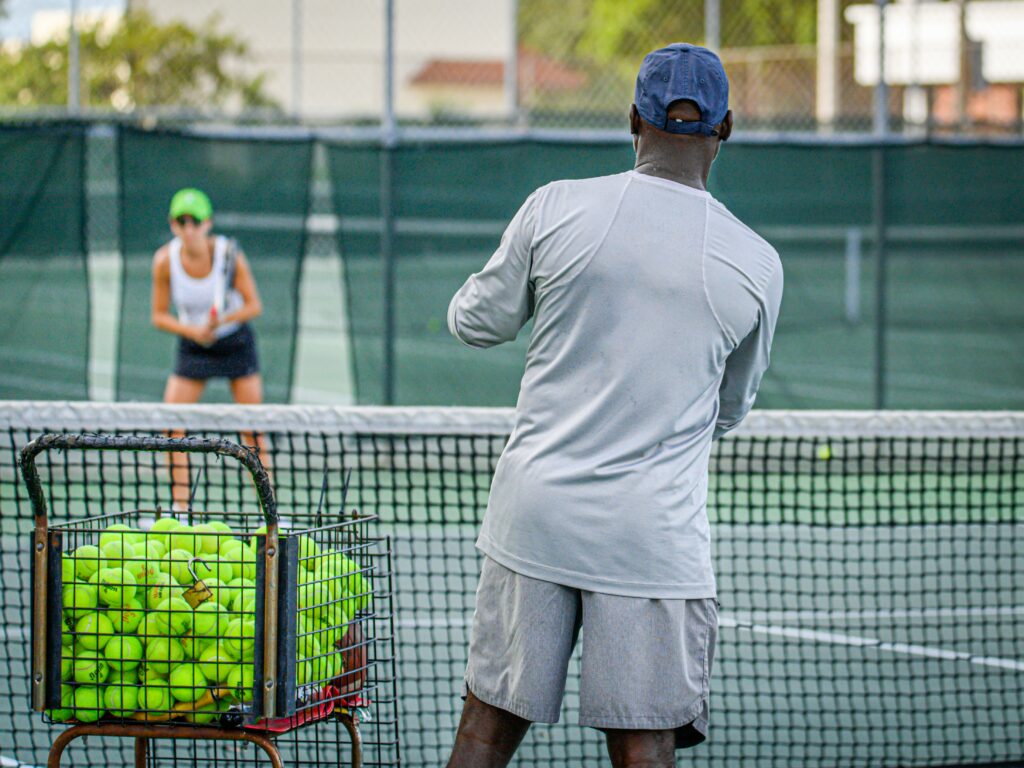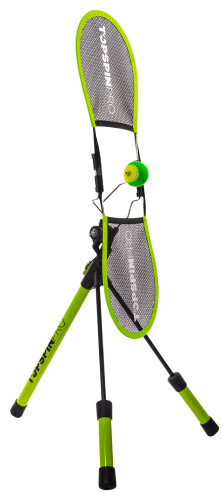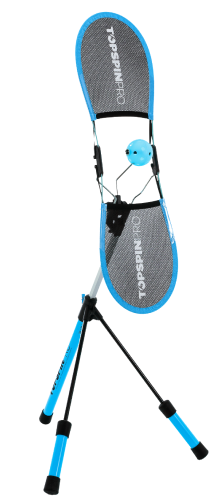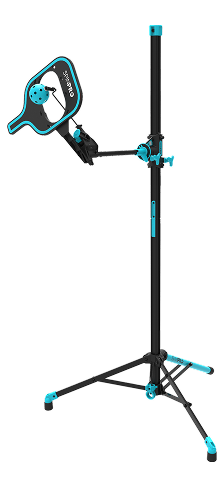 unsplash.com
unsplash.com
Stay in the loop!
Want to be updated when we publish? Be sure to sign up for our newsletter. No spam, we promise!
Why Less Coaching Can Be Better
Having a coach is great. They help motivate you and provide structured practice. Plus, booking in with them gives you a regular commitment to being on court. But, there are also plus sides to having some alone time. The top players in the world have got there with 1000s of hours of independent practice. This time on your own helps you get to know yourself. It allows a deeper analysis of your overall game and personality as a player.
How To Be Your Own Coach
Take Ownership
It’s all too easy to be reliant on someone else to guide you. Why do it if someone else is going to do it for you? One of the most frustrating things to hear as a coach, when you ask your player how their game is going is, “I’m not sure”. This is your tennis game and you should be the ultimate expert on it, not the coach. Having some time away from your coach allows you to learn more about yourself and take that ownership. You can then feed back more quality information to your coach and get the very best out of the partnership.
Learn To Analyze
Taking ownership is not so easy if you are struggling to analyze your game. Start with simple things like knowing what type of practice you like best and what style of player you are. Do you have some favorite drills? Most tennis players struggle even to know what their strengths and weaknesses are. By having time alone, you have nobody else to assist, so you have to figure it out by yourself. This trial-by-error way of learning is a much faster way of improving. This video from tenniswarehouse.com is a great way to get started. Once you know what your style of play is, you can go forward from there:
Motivate Yourself
Taking the information you have gleaned from self analysis will help you learn the best ways to motivate yourself. If there are some things you hate practicing, save those things to train with your coach. Do the things you love on your own because you know getting yourself on the court will be easier. Getting motivated is even harder when you don't have a practice partner. But you can still have a great training session. Here are some easy ways from top tennis training to practice on your own:
Add Structure And Set Goals
It's also easier to motivate yourself if you have some structure and goals to work with. For example, if you have a regular competitive commitment, then it gives you extra reason to step on the court and practice. Having some kind of routine such as days in your calendar that are for “tennis,” can also help. Setting both short and long term goals can be very useful. It might be that you want to enter your city’s yearly tennis tournament and have a set amount of time to work towards it with scheduled in practice matches and other local tournaments. Whatever your goals, you can use all of it as a positive way to structure your practice and get the most out of your valuable time.
Reward Yourself
Tennis is a tough sport, both mentally and physically. It can be demoralizing if you hit a couple of bad matches or practice sessions in a row. Positive results don’t always mean positive gains. We learn more about ourselves from bad days and we also gain more from tough practice sessions. If you have found the mental fortitude to keep trying and pushing yourself through, reward yourself. We all forget to give ourselves a pat on the back when we really need it. Try being your own biggest fan. Treat yourself to something that makes you happy. It could be as simple as going for a coffee or a nice walk. Do something that makes you feel rewarded for all of your hard work.
How Much Coaching?
The question is “How much coaching should I have if I am having alone time too?”. In my experience, balance is the key: you want an equal distribution of lessons, practice, and matchplay. For most adults with busy lives, it is hard to fit in 3 regular tennis sessions per week, but the ultimate goal would be to have one of each per week. If you struggle to make 3 per week, then split it over a two-week cycle. If you have time for more than 3 sessions, then that’s a bonus. If you are a noncompetitive player, then try to get an equal split of coaching and practice.
TOPSPINPRO BEGINNER COURSES
We use the latest neuroscience in our TopspinPro Online Courses. Check them out for some in depth help with developing your shots:
In Summary
It may be that you love your time with your coach. You may be mostly heading to the court to get exercise and have no plans to compete. But if you have goals in mind and want to keep developing as a competitive player then try adding in some time as your own coach. The easiest way to get started is to add in an extra practice session with a friend or a ball machine. You can then start applying some of the tips above. Keep us updated with your progress, we love feedback.
FAQs
-
Why might less coaching be better sometimes?
Less coaching can be beneficial as it allows for independent practice, which helps players understand themselves better. Top players have achieved success with thousands of hours of independent practice, leading to deeper self-analysis and personal growth.
-
How can I take ownership of my tennis game?
Taking ownership means becoming the ultimate expert on your game, not relying solely on your coach. Time away from your coach helps you learn more about yourself and provides better feedback to your coach, enhancing the partnership.
-
What are some tips for analyzing my own game?
Start by identifying what type of practice you enjoy and your playing style. Knowing your strengths and weaknesses is crucial. Time spent alone forces you to figure things out independently, leading to faster improvement through trial and error.
-
How can I motivate myself to practice alone?
Use the insights from your self-analysis to focus on practicing what you love. This makes it easier to get on the court. Save the less enjoyable aspects for sessions with your coach. Even without a partner, you can have productive training sessions by following simple solo practice methods.
-
How should I structure my practice and set goals?
Having structure and goals can boost motivation. Regular competitive commitments, a set practice routine, and both short-term and long-term goals help. For instance, aiming for a yearly tournament can provide a clear timeline and focus for your practice sessions.
Links Related to This Article
Enjoyed this article?
Be sure to sign up for our newsletter and we'll keep you up to date about new posts




2 comments
i disassembled my topspin pro and put it back together. now the ball rotates but doesn’t bounce back for the next hit. what’s wrong with the arm?
Hi Linda. Here’s a link to our video which explains what to do in that scenario: https://youtu.be/wTYCCyjn7Lk. Thanks! Zoë